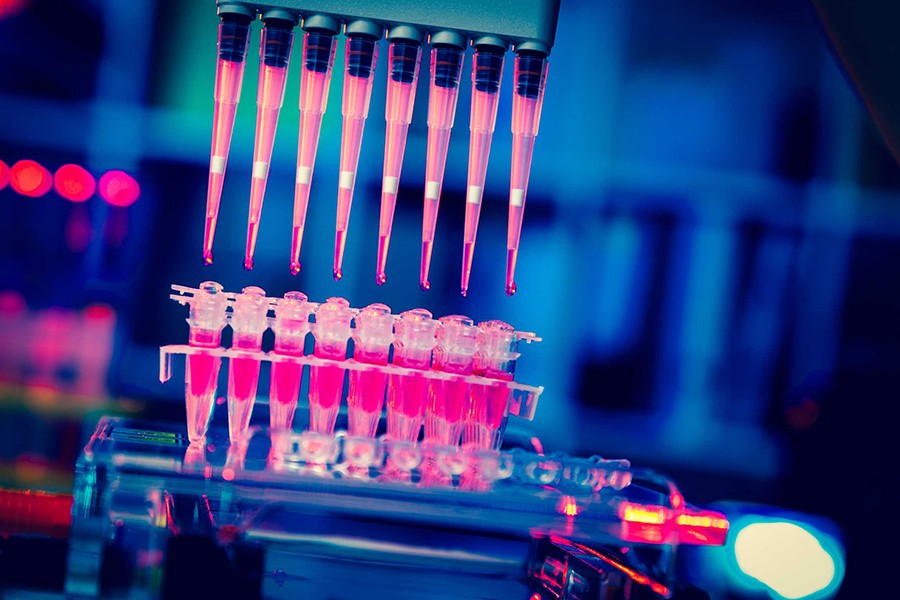Researchers at the Johns Hopkins Kimmel Cancer Center have developed a single blood test that screens for eight common cancer types and helps identify the location of the cancer.
The test, called CancerSEEK, is a unique, noninvasive test that simultaneously evaluates levels of eight common cancer proteins and the presence of cancer gene mutations from DNA circulating in the blood. The cancers that the test screens for—cancers of the ovary, liver, stomach, pancreas, esophagus, colorectum, lung, or breast—account for more than 60 percent of cancer deaths in the United States. Five of the cancers covered by the test currently have no screening test.
CancerSEEK can, in principle, be administered by primary care providers at the time of other routine blood work. The investigators envision that the CancerSEEK test will eventually cost less than $500.
"The use of a combination of selected biomarkers for early detection has the potential to change the way we screen for cancer, and it is based on the same rationale for using combinations of drugs to treat cancers," says Nickolas Papadopoulos, senior author and professor of oncology and pathology at Johns Hopkins.
The findings were published online Thursday by Science.
"Circulating tumor DNA mutations can be highly specific markers for cancer. To capitalize on this inherent specificity, we sought to develop a small yet robust panel that could detect at least one mutation in the vast majority of cancers," says Joshua Cohen, an MD-PhD student at the Johns Hopkins University School of Medicine and the paper's first author. "In fact, keeping the mutation panel small is essential to minimize false-positive results and keep such screening tests affordable."
The investigators initially explored several hundred genes and 40 protein markers, whittling the number down to segments of 16 genes and eight proteins. They point out that this molecular test is solely aimed at cancer screening and, therefore, is different from other molecular tests, which rely on analyzing large numbers of cancer-driving genes to identify therapeutically actionable targets.
In this study, the test had greater than 99 percent specificity for cancer. The test was used on 812 healthy controls and produced only seven false-positive results.
"Very high specificity was essential because false-positive results can subject patients to unnecessary invasive follow-up tests and procedures to confirm the presence of cancer," says Kenneth Kinzler, professor of oncology.
Also see
The test was evaluated on 1,005 patients with nonmetastatic, stages I to III cancer. The median overall sensitivity, or the ability to find cancer, was 70 percent and ranged from a high of 98 percent for ovarian cancer to a low of 33 percent for breast cancer. For the five cancers that have no screening tests—ovarian, liver, stomach, pancreatic, and esophageal cancers—sensitivity ranged from 69 percent to 98 percent.
Although the current test does not pick up every cancer, it identifies many cancers that would likely otherwise go undetected.
"Many of the most promising cancer treatments we have today only benefit a small minority of cancer patients, and we consider them major breakthroughs," says Bert Vogelstein, professor of oncology and Howard Hughes Medical Institute investigator. "If we are going to make progress in early cancer detection, we have to begin looking at it in a more realistic way, recognizing that no test will detect all cancers.
"This test represents the next step in changing the focus of cancer research from late-stage disease to early disease, which I believe will be critical to reducing cancer deaths in the long term."
Larger studies of the test are currently under way.
Posted in Health, Science+Technology
Tagged cancer, breast cancer, ovarian cancer, bert vogelstein, lung cancer








